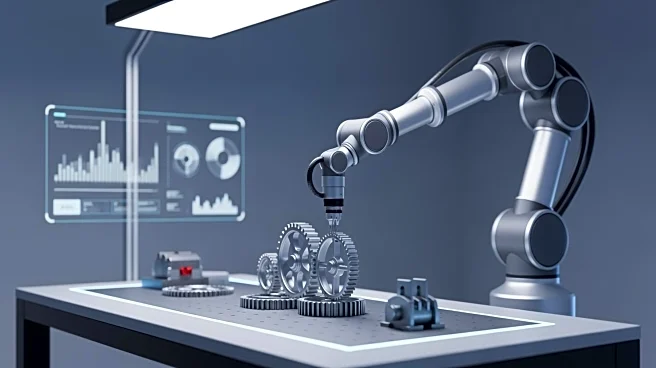What's Happening?
HR Executive has highlighted the importance of process improvement before implementing automation in HR functions. The article discusses how skipping process improvement can lead to chaos, with duplicative
workflows and new forms of waste. HR leaders are advised to standardize and optimize processes before automation, ensuring that automation supports efficient and sustainable processes. The article provides a five-step framework for HR teams to document current processes, identify improvement opportunities, design new processes, align automation with improved processes, and engage stakeholders in change management. This approach aims to prevent automation from accelerating existing problems and to build a foundation for long-term value.
Why It's Important?
The significance of this development lies in its potential impact on HR departments across the U.S. By emphasizing process improvement before automation, HR teams can avoid common pitfalls that lead to inefficiencies and increased costs. Successful automation can shift HR staff to more valuable tasks, enhancing employee experience and engagement. This approach can lead to more streamlined operations, reduced errors, and improved compliance, benefiting organizations financially and operationally. Companies that adopt these strategies may gain a competitive edge by optimizing their HR functions and improving overall productivity.
What's Next?
HR departments are expected to continue refining their processes and adopting automation tools that align with improved workflows. Stakeholders, including HR professionals and IT departments, will likely collaborate to ensure that automation tools fit seamlessly into existing systems. Continuous improvement loops will be established to monitor performance and gather feedback, ensuring that processes remain aligned with business goals. As organizations adapt to these changes, training programs will be crucial to equip employees with the necessary skills to navigate new processes and technologies.
Beyond the Headlines
The deeper implications of this development include potential shifts in workplace culture and employee roles. As automation takes over manual tasks, HR staff may need to adapt to new roles that focus on strategic initiatives and employee engagement. This transition could lead to changes in organizational structures and require a reevaluation of HR strategies. Additionally, the emphasis on process improvement highlights the growing importance of data-driven decision-making in HR, as organizations seek to optimize their operations and enhance employee satisfaction.









